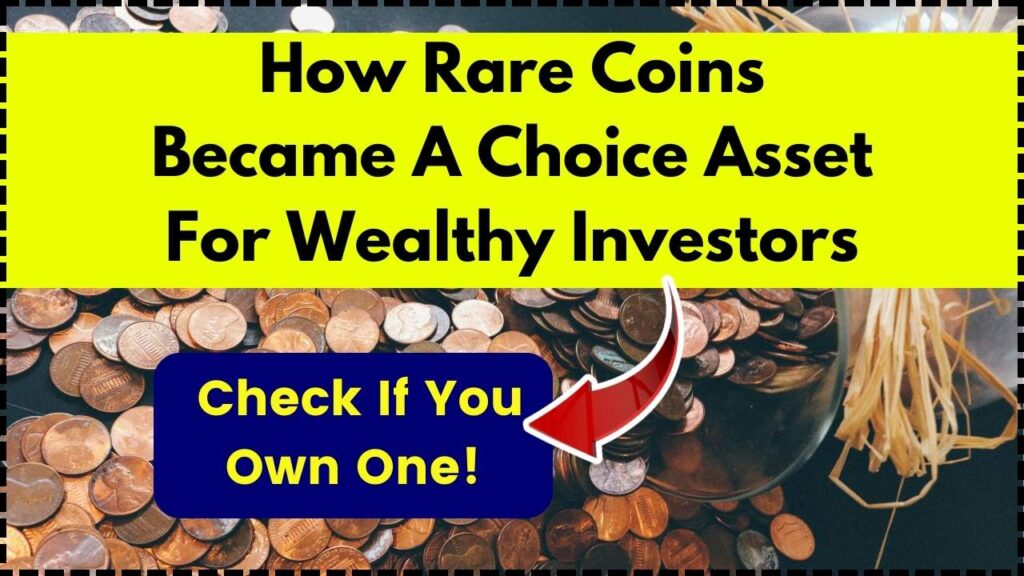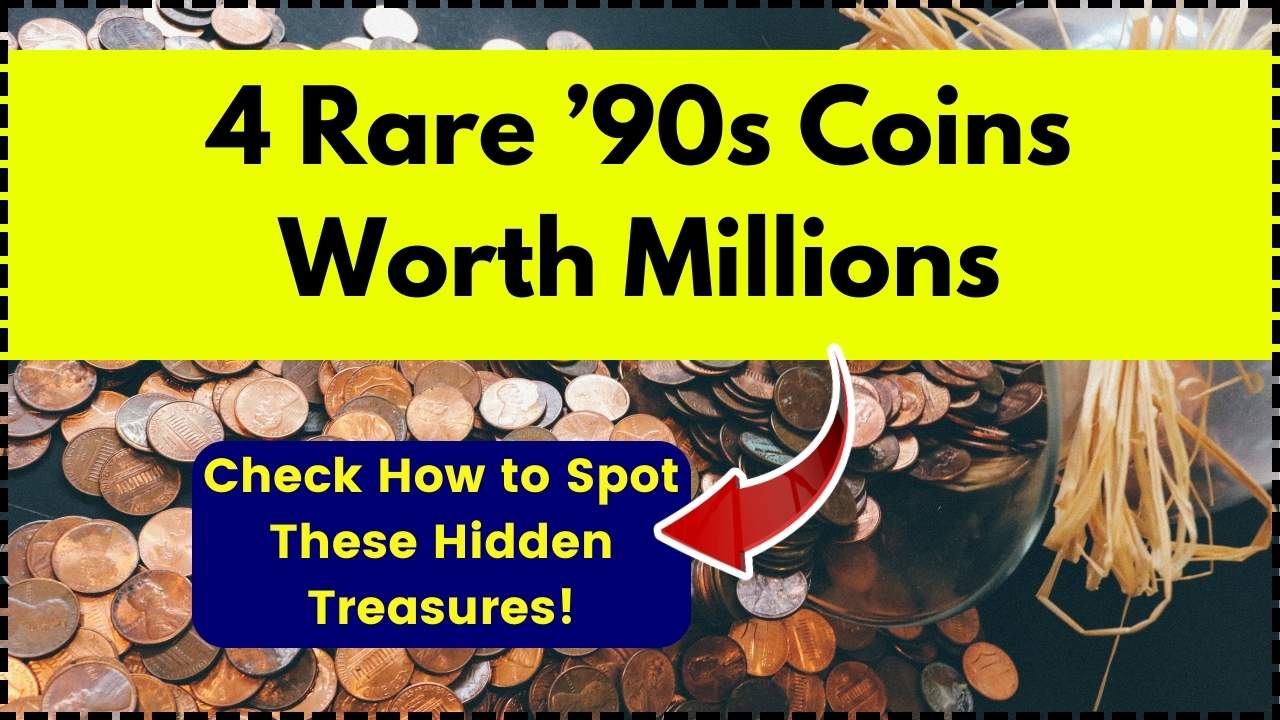How Rare Coins Became A Choice Asset For Wealthy Investors: Rare coins are no longer just the treasures of hobbyists and history buffs — they’ve officially joined the ranks of alternative assets coveted by savvy investors, especially the wealthy. In a world rocked by market volatility, inflation, and a constant hunger for portfolio diversification, high-net-worth individuals are turning to numismatics (the study and collection of coins) as a stable, appreciating, and even enjoyable investment vehicle. In this article, we’ll break down why rare coins are booming, how to know if you already own a valuable one, and what you should know before jumping into the world of coin investing. Whether you’re an investor looking for your next smart move or someone who just inherited a box of old coins, this guide is built to serve you.
How Rare Coins Became A Choice Asset For Wealthy Investors
Rare coins are more than just pocket change — they’re powerful tools for building wealth, preserving history, and hedging against market chaos. With the right knowledge, patience, and eye for detail, anyone can start exploring this fascinating world. For wealthy investors, rare coins offer a unique asset class that combines luxury, legacy, and long-term gain. Whether you’re just starting out or looking to level up your portfolio, understanding how and why rare coins are thriving is a smart move.

| Aspect | Details |
|---|---|
| Market Growth | Rare coin market grew by over 20% in 2023, outperforming gold’s 10% rise. |
| Top Sale | The 1933 Double Eagle gold coin sold for $18.9 million in 2021. |
| Entry-Level Investment | Many collectible coins available under $500. (PCGS) |
| Authentication | Always buy graded coins from PCGS or NGC. |
| Wealth Strategy | Offers portfolio diversification, inflation hedge, and tangible value. |
The Rise of Rare Coins as an Investment
A Shift from Collecting to Wealth Preservation
Traditionally, coins were collected as historical keepsakes or family heirlooms. But over the past two decades, rare coins have taken on a new identity — that of an elite asset. Thanks to increased awareness, digital auctions, and rising interest in physical assets, rare coins are now sought-after by ultra-high-net-worth individuals alongside art, fine wine, and watches.
The Professional Numismatists Guild estimates that the U.S. rare coin market exceeds $6 billion annually, with top coins appreciating at rates of 10–30% over a decade.
Why Rare Coins Became A Choice Asset For Wealthy Investors?
1. Tangible Assets That Tell a Story
Rare coins hold intrinsic value. They are minted in gold, silver, or copper, and their historical significance boosts their worth even further. A Civil War-era coin or a limited-run mint error becomes a one-of-a-kind artifact that no stock or crypto token can match.
2. Limited Supply = Long-Term Value
Unlike stocks, you can’t just print more of a 1794 Flowing Hair Dollar. Rarity is locked in. This scarcity ensures strong demand at auction houses like Heritage Auctions and Stack’s Bowers Galleries.
3. Portfolio Diversification
Rare coins aren’t tied to traditional markets. During the 2008 financial crisis, coins in top grades remained stable or even appreciated. For investors looking to hedge against inflation, geopolitical uncertainty, or a crashing stock market, coins are a dependable store of value.
4. Tax Advantages
In many cases, collectibles like rare coins are treated differently than traditional assets for capital gains. This can offer some strategic benefits, depending on your portfolio.
Rare Coins That Made Headlines
| Coin Name | Notable Sale |
|---|---|
| 1933 Double Eagle | Sold for $18.9 million in 2021. |
| 1894-S Barber Dime | Fewer than 10 known; one sold for $1.9 million. |
| 1913 Liberty Head Nickel | Five known; one sold for $3.7 million. |
| 1943 Copper Penny | Wartime mint error; one sold for $1.7 million. |
| 2000-P Sacagawea Mule | Modern minting error; sold for over $80,000. |
How to Know If You Own a Valuable Coin?
If you’ve got a jar of coins or inherited a box of old change, you might be sitting on a fortune. Here’s how to find out.
Step 1: Look for Key Indicators
Check for odd dates, mint marks, or unusual metals. Some valuable coins appear normal until closely inspected. For example, the 1943 Copper Lincoln Penny looks just like a regular penny — except it’s not.
Step 2: Use Reliable Resources
Start with free tools like NGC Coin Lookup or the PCGS Price Guide. These sites let you identify coins and get ballpark values.
Step 3: Get a Professional Appraisal
If a coin seems valuable, send it to a grading service. PCGS (Professional Coin Grading Service) or NGC (Numismatic Guaranty Company) are industry standards. These companies assess condition and assign a numerical grade, which directly affects market value.
Step 4: Join the Numismatic Community
Get involved in coin clubs, attend local shows, or subscribe to trusted magazines like Coin World or Numismatic News. The more you learn, the better you’ll be at spotting potential treasures.
Smart Ways to Invest in Rare Coins
Beginner Strategy
- Start with silver or copper coins under $500.
- Focus on coins graded MS-65 or higher.
- Avoid ungraded or raw coins from eBay or flea markets.
Intermediate Strategy
- Diversify by era (Colonial, Civil War, 20th Century).
- Track auction houses for market comps.
- Use a trusted dealer or broker with credentials.
Advanced Strategy
- Target top-tier rarities (population under 20).
- Invest during dips; sell when demand peaks.
- Incorporate rare coins into your estate or wealth plan.
These Rare Coins Are Worth Millions – Check If Coin Collecting Is Your Next Big Investment Move
Check 5 Rare Coins Worth Over £300 Including an Olympics 50p: How to Spot These UK Coins?
Frequently Asked Questions (FAQs)
Q: Are all old coins valuable?
Not necessarily. Many coins are common even if they’re old. Condition, rarity, and demand all matter.
Q: What is the best way to sell rare coins?
Use a certified dealer, auction house, or trusted platform like GreatCollections. Avoid pawn shops.
Q: How do I store rare coins safely?
Use acid-free holders and a temperature-controlled safe. Avoid touching them with bare hands.
Q: Can I invest in coins with a retirement account?
Yes, through a self-directed IRA. Work with a custodian that allows alternative assets.






